- Learning time
- 10 minutes
- First play time
- 60 minutes
ILIOS: Battle for Troy
Designed by: Eliot Hochberg
ILIOS is an abstracted game of combat where your goal is to capture warrior tiles. Players begin with three such tiles at their disposal, and each also has a number of discs of their own colour. A starting wasteland tile and iron age tile are positioned randomly on the board, and then play begins.
On your turn, you follow three simple steps of deploy, raid & occupy, and surround and plunder.
Deployment means placing a warrior tile with one of your discs atop it to denote ownership. But where you place your warrior comes with some restrictions. Every tile has between one and eight white pointers on it, and at least one of these pointers must align towards either the iron age tile, or one of your opponents’ warriors (-if you can’t make a legal play, you must prove it by showing opponents your three warrior tiles, and then get to place on any vacant square)
Once deployed your warrior now follows the raid & occupy step by taking control of any enemy squares it’s pointing at; bumping the enemy disc off and replacing it with one of your own.
When a tile is completely surrounded – on all eight sides, or utilising the edges of play, then the occupying player takes the tile for themselves – not into their hand, but a separate stack for scoring. This can happen even when it’s not the recipient’s turn – the tile is claimed regardless, and the active player draws back up to a hand of three warriors before play continues.
As soon as the final square on the board is occupied the game ends – players count up the numbers on their plundered tiles and the highest tally wins.
Our copy of the game came with the Troy Expansion, where the valuable city of Troy is placed central on the board, and extra tiles are mixed into the bag and horse tiles allow more flexibility in how you plunder, as they allow ‘jumping’ over tiles to attack, and the 8-pointer tiles gives an additional in-game power to discard a tile from the bag and draw a new one.
The guru's verdict
-
Take That!
Take That!
Despite the abstraction, ILIOS is a extremely combative game, and lovers of gentler fun should look elsewhere.
-
Fidget Factor!
Fidget Factor!
Low to moderate, depending who is playing and which stage of the game you're at.
-
Brain Burn!
Brain Burn!
Not too weighty, as you only have three tiles to choose from and in the early game particularly choices often suggest themselves. However the late game is different, as decisions become more critical and there's an element of risk in not knowing what tiles your opponents have.
-
Again Again!
Again Again!
No two games are identical because the tile draw is a randomiser, and the tile draw will change the narrative of the game. But it's not a game that sings out variety; this is one for the lovers of abstract games, and shrewd tacticians.

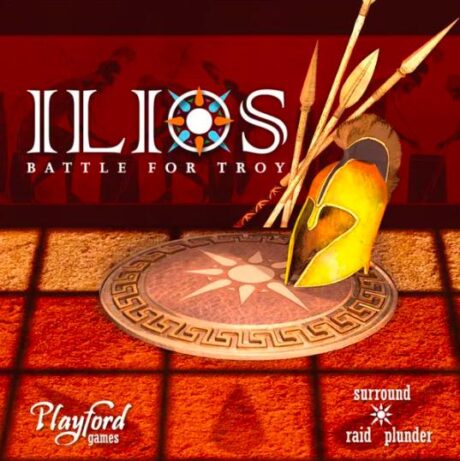
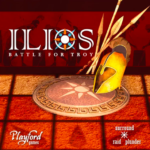

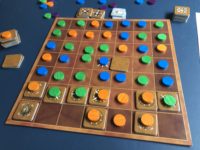



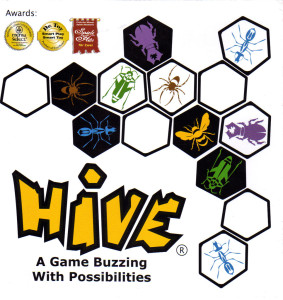
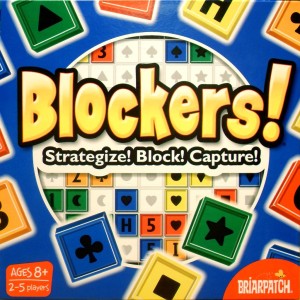
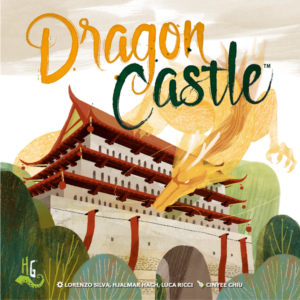
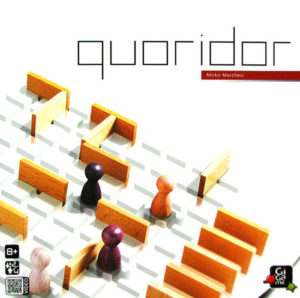
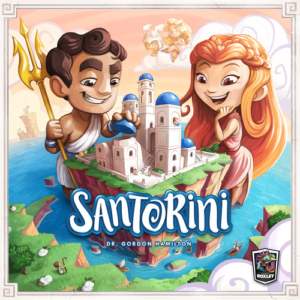
Sam says
Although I'm less drawn to abstracts than some, I do admire how they cook up a highly-interactive exchange using simple rules and components, and ILIOS is easy to learn and play. There's a nice air of tension to how the game develops, and you can balance poor luck on the draw of the tiles with clever placement on the board. But in a fairly crowded market ILIOS didn't jump out at me as abstracts like Tak, Hive and SHOBU have done, all of which manage to conjure something magical out of the box. My impression here was of a system, rather than the fun or drama it was facilitating: those aspects weren't entirely absent, but they weren't as pronounced as I'd have liked. All that said, I'm sure there are many who will enjoy ILIOS more than I did - accessible, reasonably quick, and unlike the three games mentioned above it allows for three or four player games as well as head-to-head.